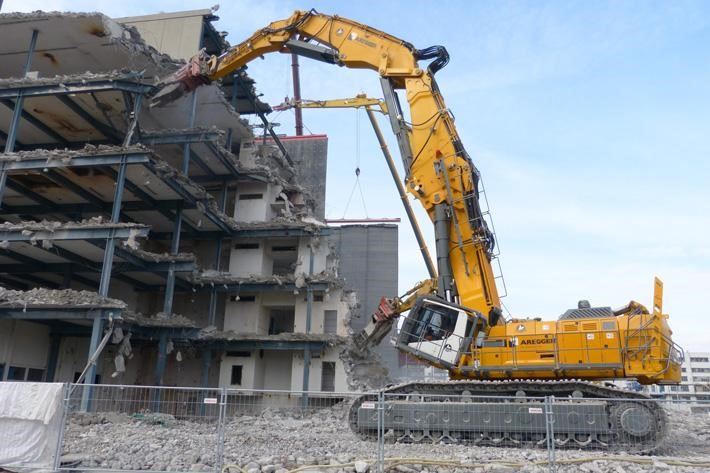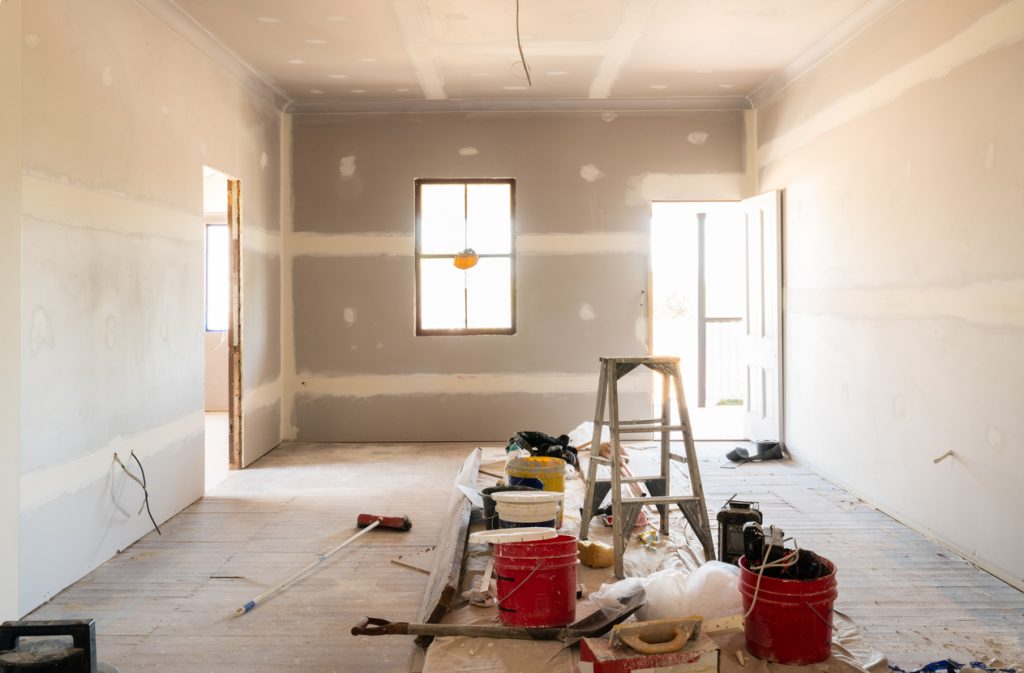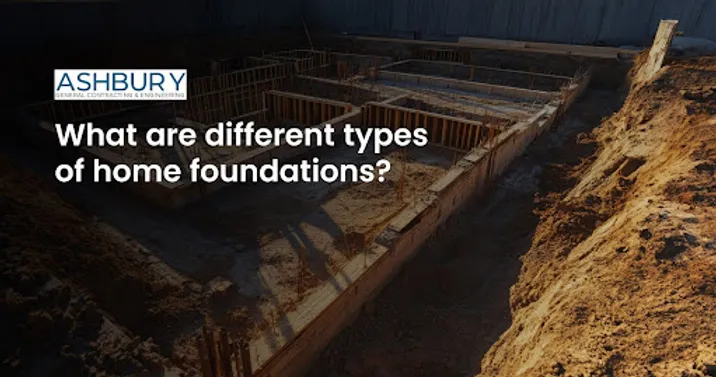Demolition vs. Renovation: Cost, Timeline, and What to Expect?
When you’re staring at an aging home, an outdated office space, or a crumbling structure, one of the biggest decisions you’ll face is whether to demolish the structure from scratch and start or to renovate it to suit modern needs. Both choices come with their pros and cons, and choosing the right path can significantly impact your timeline, budget, and overall project goals.
In this guide, we’ll break down the critical differences between demolition and renovation, helping you decide which option is best for your property. Whether you’re a homeowner, business owner, or real estate investor, understanding your options is key to making an informed decision.
Understanding Demolition and Renovation
Before comparing the two, let’s define what each process entails:
What is Demolition?
Demolition refers to tearing down a structure entirely or partially to make way for a new building. It can range from small-scale interior demolitions (like gutting a kitchen) to full-building teardowns.

Demolition is typically chosen when:
- The building is structurally unsound
- Renovation costs outweigh new construction
- Zoning laws or land use have changed
- A modern layout or expansion is needed.
What is Renovation?
Renovation is the process of enhancing, updating, or restoring an existing structure while preserving its original framework. It can include everything from minor cosmetic upgrades to complete interior redesigns.

Renovation is ideal when:
- The building is structurally sound
- Do you want to preserve historical or architectural elements
- Your budget is limited
- You want to enhance rather than replace
Key Factors to Consider
To choose between demolition and renovation, consider the following aspects:
1. Structural Integrity
The condition of the building’s foundation, roof, and frame each has a crucial role to play. If your property has extensive structural damage (due to age, pests, or environmental events), repairs may not be cost-effective. In such cases, demolition may be considered a safer and more efficient option to choose from.
Renovation is suitable when the building’s bones are strong, and issues are mostly cosmetic or layout-related.
2. Cost and Budget
While many assume renovation is always cheaper, that’s not always the case. Hidden costs like asbestos removal, code compliance upgrades, and unforeseen structural issues can add up quickly during a renovation.
Demolition, followed by new construction, may be more cost-effective in the long run, especially when:
- Your renovation costs exceed 50% of the building’s value
- You plan major layout changes or additions
- Energy efficiency upgrades are needed throughout
3. Project Timeline
Renovations can exceed than anticipated timeline because of:
- Unpredictable complications
- Permit delays
- Structural surprises
Demolition and rebuilds often follow a more predictable schedule since you’re working with a clean slate. If time is a major constraint, starting fresh could save you from unexpected delays.
4. Historic or Sentimental Value
If your building has historic value or holds sentimental significance, renovation allows you to preserve unique architectural elements. In some areas, demolition of historically significant structures is restricted or requires special approval.
Renovation can retain the original charm and character while updating the property to modern standards.
5. Environmental Impact
Renovating is typically more environmentally friendly, as it reduces construction waste and preserves materials. However, new construction can incorporate more efficient systems and sustainable materials from the start.
For eco-conscious homeowners and developers, it’s essential to weigh long-term energy savings against short-term environmental costs.
A study published in the Journal of Environmental Management highlights that renovation often results in significantly lower carbon emissions compared to full demolition and rebuilding.
6. Zoning and Building Codes
Renovating may limit you to the existing footprint and height of the structure. If you need a different layout or additional square footage, demolition and rebuilding might offer greater flexibility.
Check local zoning laws and building codes to ensure your project goals align with regulations. Sometimes, demolishing the building opens doors to newer designs that better match zoning rules.

Pros and Cons of Demolition
Pros:
- A clean slate for new design
- More flexibility in layout and materials
- Potential for better energy efficiency
- Fewer surprises compared to renovation
Cons:
- Higher upfront costs
- Increased construction waste
- Longer permitting process in some jurisdictions
- Potential loss of historic features
Pros and Cons of Renovation
Pros:
- Preserves character and charm
- Lower upfront costs (in some cases)
- Less environmental impact
- This can be done in phases.
Cons:
- Risk of hidden problems (mold, outdated wiring)
- Structural limitations
- May be restricted by building codes
- Can end up costing more than expected
When to Choose Demolition
Choose demolition if:
- Your building is unsafe or not up to code
- The layout no longer serves your needs
- You want a modern, custom structure
- Renovation costs are unmanageable
- Your structure has little to no historical value.
When to Choose Renovation
Choose renovation if:
- The structure is fundamentally sound
- You want to preserve architectural details
- Your budget is tight but you want updates
- You prefer not to have any wastage or environmental impact
- You only need cosmetic or layout changes.
Real-World Example Scenarios
Scenario 1: Aging Residential Home
An old 1950s home with outdated wiring, failing plumbing, and a sagging foundation might cost over $200,000 to renovate. Demolishing and building new could cost the same or less — with modern materials and a layout tailored to your lifestyle.
Scenario 2: Commercial Property Refresh
A retail store in a prime location may only need cosmetic updates like new flooring, better lighting, and signage. In this case, renovation offers a cost-effective way to improve aesthetics without major structural changes.
Scenario 3: Historic Property
A Victorian home with beautiful woodwork and stained-glass windows might not be replaceable. Renovating preserves these features while bringing the home up to modern standards.
Making the Final Decision
The ultimate choice between demolition and renovation depends on below points:
- Your goals
- The condition of the current structure
- Your budget and timeline
- Long-term property value
Consulting with a professional contractor can help you assess the true cost and feasibility of either option.
How Ashbury Construction Can Help
Whether you’re leaning toward a full demolition or considering a detailed renovation, Ashbury Construction offers expert guidance and end-to-end services to bring your vision to life. With years of experience in both residential and commercial projects, our team ensures every project is safe, efficient, and customized to your needs.
We handle everything — from site assessments and permitting to design and execution — so you can make the best decision with confidence.
Frequently Asked Questions
Is it cheaper to demolish and rebuild or renovate?
It depends on the condition of your property and your project goals. Renovations may be cheaper upfront, but rebuilding could save more in the long term if the structure needs extensive repairs.
Do I need a permit for demolition or renovation?
Yes, both usually require permits. Demolition often involves stricter regulations due to safety and environmental concerns. Always check with your local authorities or work with a licensed contractor.
Can I live in my home during renovation?
In many cases, yes — especially for partial renovations. However, extensive work involving structural changes, asbestos removal, or plumbing/electrical overhauls may require temporary relocation.
How long does a typical renovation take compared to demolition and rebuild?
A full renovation can take several weeks to months depending on the scope, while demolition and rebuilds can take longer but offer more predictability in the schedule.
What kind of properties benefit most from renovation?
Homes with historical value, strong structural bones, or minor cosmetic issues benefit the most from renovation. They allow for character preservation with modern upgrades.



